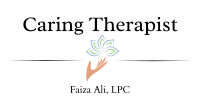5 Benefits of Therapy for Addiction
Home / Single Post

- Sister Faiza, LPC
- 03, Dec 2023
- 2 Min Read
- Share
5 Benefits of Therapy for Addiction
After helping many individuals maintain sobriety, I’m explaining the top five benefits of therapy for addiction. By the end of this post, you will have a sense of whether addiction counseling is right for you. Here are five ways therapy can help you overcome addiction:
Therapy can identify triggers associated with substance abuse.
Therapy can help you gain valuable insight into the incidents, events, and moments in your life that contribute to ongoing addiction. Struggling with addiction can be incredibly difficult, and it’s not always easy to see how certain relationships or experiences impact your addictive behaviors. Therapy can support you in overcoming the core issues that fuel a sense of disconnection or emptiness.
Therapy can assist in addressing addiction and mental health issues.
One-on-one therapy sessions can assist you in navigating the challenges that come with a dual diagnosis of drug addiction and mental disorder. The strategies that are used in therapy can coincide with support for other mental health issues you’re affected by, such as depression, anxiety, or trauma. Due to addiction and mental disorder often going hand in hand, therapy can help you work on them simultaneously.
Therapy can provide peer assistance for addiction.
In group therapy, you can connect with others going through similar struggles and gain valuable insight and support from a community of individuals working towards recovery. Sharing in these group settings provides opportunities to give and receive support. Therapy and peer support can help you develop the skills and tools you need to achieve lasting recovery and build healthy relationships.
Therapy can provide new strategies for sobriety.
Therapy sessions are designed to equip you with the tools you need to remain sober and may include behavior strategies to help you avoid negative triggers. One approach that therapists commonly use is Cognitive Behavioral Therapy (CBT), which helps individuals identify negative patterns of thinking and behavior and consider more beneficial choices. Therapy specializes in treating addiction and co-occurring mental health disorders using evidence-based therapies like (CBT).
Counseling can assist with relapse prevention.
You can overcome addiction with the right support and tools. Therapy can help you process emotions, overcome triggers, and prevent relapse. Therapy can help you identify the underlying causes of your addiction and teach you how to maintain your sobriety long-term.
Caring Therapist
Therapy can be a powerful tool in helping you overcome addiction and mental health issues. As a trained and experienced therapist, I offer individualized treatment plans to help you achieve your goals and overcome your challenges. Together, we can work towards a happier and healthier life.
For more information on Caring Therapist, contact me today:
